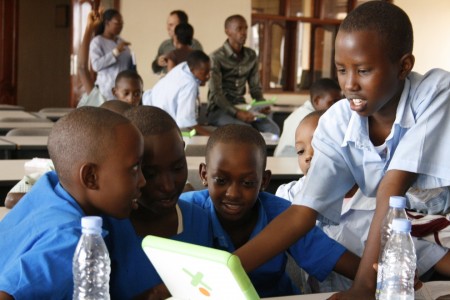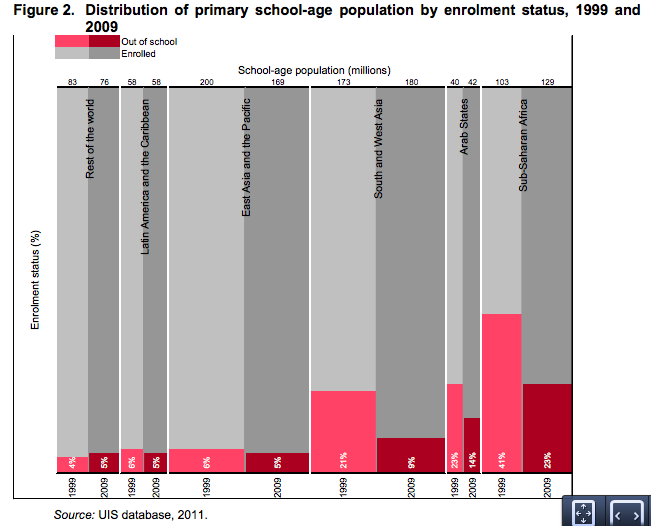As we prepare for 2012, here is a quick look back at the past year of OLPC. We distributed our two millionth laptop (now 2.5M), and our largest programs in Latin America (Peru) and Africa (Rwanda) grew steadily. Austria’s Julieta Rudich and Journeyman Pictures produced a fine documentary about Plan Ceibal in Uruguay (the world’s first complete olpc program), and Peru provided XOs and compatible robotics kits to all of their urban schools.
In East Africa, we expanded our work with African nations and donors to improve education for children across the continent. We were invited by both the African Union and the UN to open an OLPC office in Addis Ababa, Ethiopia. Addis is a major hub for African diplomacy, and the support there for our mission has been stunning. We have become a full partner of the East African Community in Tanzania, and our recent country report on Rwanda has driven further interest in the region.

A Rwandan student workshop in Kigali
In the Middle East, we continued working with the Palestinian Authority, Israel and the UN to provide thousands of Palestinian children with XO laptops, integrating them into schools. It took ten months to work the laptops through customs in Gaza. But at a forum in Ramallah in June, teachers from Bethlehem and Gaza showed how OLPC was helping to end isolation and to excite learning for their children. Third grade girls in refugee camps are teaching others and writing computer programs. The testimony of these women to the power of persistence was extraordinary.
In Afghanistan, we founded a regional OLPC Afghanistan office, and briefed General Petraeus on the project. We believe that one laptop per child and connectivity, across the country, will transform this generation and their communities. Today we are working with the Education Ministry to support four thousand children in 10 schools, and are looking into expanding in Herat Province.
On the technical side, we focused on driving down laptop power needs by switching over to ARM chips in the XO-1.75 and upcoming XO-3 tablet. The tablet should be chargable by a solar panel that could serve as its carrying-case. We are studying new ways to help children learn to read, including where there are no schools at all.
In society, the idea that every child should have access to their own computer and to the Web – as a basic part of learning, whatever their family income – continued to spread. In addition to ongoing national programs in Argentina, Portugal, and Venezuela (for secondary students), two full-saturation laptop programs for older students are developing in India – an inexpensive tablet is being distributed to university students, and in Tamil Nadu dual-boot laptops from six different manufacturers are being provided to secondary students.
Reaching the least-developed countries in the world remains our goal and our most difficult challenge. While our largest deployments are funded directly by implementing governments, rural successes may be driven by foundations, NGOs, and individual donations. OLPC Rwanda, today one of the largest educational technology projects in Africa and part of a ten-year government plan, was seeded with ten thousand laptops given by Give One, Get One donors.
So to our supporters: thank you for your development, contributions, and collaboration, your feedback from the field, and your encouragement! This is all possible thanks to you.
Happy New Year to all — may 2012 bring you inspiration and discovery. We have some excellent surprises planned for the new year. And we would love to hear your reflections as well — please share stories from your own school projects in 2011.


